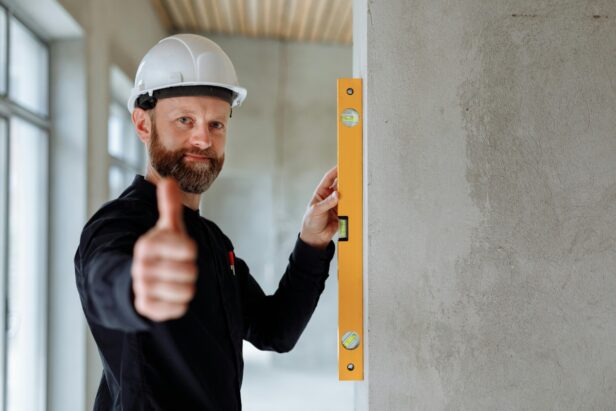The DFW Metroplex construction market buzzes with activity. Thousands of projects span residential remodeling, commercial construction, healthcare facilities, and major infrastructure work across Dallas and surrounding areas.
Success starts with defining your project scope clearly, then matching it to contractors who specialize in your specific needs. At EB3 Construction, we recommend focusing first on delivery method requirements like preconstruction planning, design-build coordination, or construction management services, then evaluating technical capabilities, safety records, and project close-out support that align with your timeline and budget constraints.
How Large And Diverse Is The Dallas GC Market—And Why Does It Matter?

The Dallas general contractor market operates at massive scale. One network alone lists 3,597 general contractors within 25 miles of Dallas, spanning every conceivable specialty and project type. This depth represents far more than simple contractor availability.
These thousands of Dallas general contractors serve distinct market sectors with specialized expertise. Commercial construction firms handle office buildings, retail centers, and mixed-use developments. Healthcare contractors focus on hospitals, medical offices, and specialized treatment facilities. Industrial specialists manage manufacturing plants, warehouses, and distribution centers. Residential contractors range from custom home builders to apartment complex developers.
The trades and services available through the DFW construction market cover the complete spectrum of construction disciplines. Concrete specialists handle foundations and structural elements. Structural steel contractors manage high-rise frameworks and industrial facilities. Project management firms coordinate complex multi-phase developments. Electrical, plumbing, and HVAC trades support every building type across the metroplex.
This market diversity creates distinct advantages for property developers and owners. We can match contractors precisely to project requirements rather than settling for general capabilities. A healthcare facility renovation demands different expertise than a ground-up office building or industrial plant expansion. The scale of available contractors means finding firms with proven track records in specific sectors and building types.
However, this abundance requires strategic navigation. The sheer number of available contractors makes thorough prequalification essential rather than optional. Price alone becomes an inadequate selection criterion when service depth and specialized experience vary dramatically between firms. We recommend evaluating contractors based on demonstrated capabilities within your specific sector, technology adoption, safety performance, and project delivery track record rather than lowest-bid selection.
Which Capabilities Should You Prioritize When Hiring In Dallas?
Choosing the right general contractor requires evaluating their service depth across critical project phases. We focus on three priority areas when assessing capabilities: core project services, delivery methods and technology integration, and quality management systems.
Essential Preconstruction And Project Planning Services
Preconstruction services form the foundation of successful project delivery. Look for contractors who offer comprehensive cost budgeting, detailed estimating, and realistic scheduling during the planning phase. These capabilities help establish accurate project baselines before construction begins.
Value engineering represents another critical capability. Contractors should demonstrate experience in identifying cost-saving opportunities without compromising quality or functionality. This process involves analyzing materials, methods, and design alternatives to optimize project value.
Permitting and zoning support streamlines the approval process. We coordinate with local authorities to secure necessary permits and ensure compliance with Dallas building codes and zoning requirements. This capability prevents delays and reduces regulatory risk.
Project Delivery Methods And Technology Integration
Design-build delivery offers significant advantages for many projects. This approach combines design and construction under a single contract, creating streamlined communication and faster project completion. Research from the Design-Build Institute of America shows design-build projects are delivered 36% faster during construction and 102% faster over the life of the project.
Construction management capabilities enable effective coordination of trades, schedules, and resources. This delivery method provides transparency through open-book accounting and collaborative decision-making throughout the construction process.
Virtual Design and Construction (VDC) and Building Information Modeling (BIM) represent essential technology capabilities. These tools support clash detection, quantity takeoffs, and construction sequencing. VDC enables virtual design collaboration between stakeholders, improving coordination and reducing field conflicts.
Quality Management And Process Excellence
LEED certification and sustainability practices indicate a contractor’s commitment to environmental stewardship. We integrate sustainable building practices, energy-efficient systems, and waste reduction strategies into our construction processes.
Safety focus remains paramount in construction operations. Evaluate contractors based on their safety records, training programs, and commitment to jobsite safety protocols. Strong safety performance protects workers and reduces project liability.
ISO 9000-style quality management systems demonstrate structured approaches to quality assurance. These systems include documented procedures, regular inspections, and continuous improvement processes that ensure consistent project quality.
Site logistics planning capability becomes crucial in urban Dallas environments. Effective contractors coordinate material deliveries, equipment placement, and traffic management to minimize disruption and maintain project efficiency.
Total cost of ownership analysis helps evaluate long-term project value. This capability involves assessing operational costs, maintenance requirements, and lifecycle performance during the design and construction phases.
Project Close-Out And Warranty Services
Strong close-out practices reduce post-construction risks and ensure smooth project handover. Look for contractors who provide comprehensive warranty services, detailed as-built documentation, and systematic punch-list completion.
Project close-out capabilities should include coordinating final inspections, obtaining occupancy permits, and delivering operational manuals. These services ensure projects meet all requirements and are ready for occupancy.
Warranty management demonstrates long-term commitment to project quality. We provide clear warranty terms, responsive service, and proactive maintenance support to protect your investment beyond project completion.
What Should You Verify About Licensing, Permits, Insurance, And Costs In Dallas?

Licensing And Permits
A general contractor license covers coordinating trades and building code compliance in Dallas. Texas doesn’t require a state-level general contractor license, but the City of Dallas does require contractor registration before pulling permits. You’ll need to check your specific permit requirements through the Official Website of the City of Dallas and their new DallasNow system.
Dallas requires contractors to register annually with proof of liability insurance, a state sales tax permit, and a certificate of occupancy for a physical business location within Dallas. Different work types may need additional permits, from residential building to commercial general contracting, roofing, fencing, foundation work, demolition, and pool contracting. The city’s permit requirements vary by project scope and location.
Insurance Coverage And References
Ask contractors which insurance types they carry and request recent project references. Dallas requires workers’ compensation and commercial auto insurance for registered contractors. General liability insurance protects against property damage and bodily injury claims. Professional contractors typically carry coverage limits that exceed city minimums.
References should include recent projects similar to yours in scope and complexity. Contact previous clients to verify completion times, budget adherence, and communication quality. Strong contractors will readily provide this information and encourage direct contact with past clients.
Supervision And Subcontractors
Confirm how your project will be supervised daily and whether subcontractors will handle specific trades. Ask about the supervision structure: Will a project manager be on-site? How often will they check progress? What’s the communication protocol for updates and issues?
Verify the contractor’s approach to subcontractor management. Do they use the same trusted subcontractors regularly? How do they ensure quality control across different trades? Understanding this coordination helps predict project flow and accountability.
Timeline And Change Management
Set a realistic expected timeline and define how changes will be handled before work begins. Experienced Dallas contractors factor in permitting delays, weather considerations, and material delivery times. They should provide a detailed schedule with key milestones and explain their contingency planning.
Document the change management process clearly. How are scope changes requested, priced, and approved? What’s the timeline for change order responses? Clear change procedures prevent disputes and keep projects moving forward smoothly.
| Professional | Hourly Rate |
| General Contractors | $100 – $200 |
| Electricians | $50 – $100 |
| Plumbers | $45 – $90 |
| Carpenters | $40 – $90 |
| Painters | $35 – $75 |
Disclaimer: Pricing figures are based on publicly available market data and are intended for general estimation purposes as of August 2025. They do not represent a formal quote from EB3 Construction. Actual costs will vary by project scope, location, labor rates, and material prices.
Costs And Payment Structure
Dallas contractor costs typically fall into several ranges depending on project type and complexity. Hourly rates range from $50 to $150, while markup percentages commonly span 10% to 20% of total project costs. Daily rates often fall between $300 and $500 for smaller projects or specialized work.
Down payments in Dallas commonly range from 10% to 25% of total project cost. Legitimate contractors avoid requesting large upfront payments and structure payments around project milestones. Be cautious of contractors requesting more than 25% down or full payment before substantial work completion.
Homeowner feedback consistently notes communication frustrations with contractors who don’t document agreements clearly. We recommend documenting all project scope, schedule commitments, contact information, and change procedures in writing. This protects both parties and reduces misunderstandings during construction. Clear documentation helps ensure your Dallas project stays on track and within budget.
How Can You Shortlist And Compare Dallas General Contractors Effectively?
Creating an effective shortlist starts with clarifying your project scope and preferred delivery method. Define whether you need design-build services, construction management, or traditional general contracting before searching for firms.
Building Your Initial Shortlist By Sector
Focus on contractors with direct experience in your market sector. Commercial office projects require different expertise than residential remodeling or industrial facility construction. We look for firms that demonstrate consistent success within specific building types and project scales.
Use platforms like ConstructConnect to filter contractors by market sector and services offered. Some networks show thousands of general contractors within 25 miles of Dallas, allowing you to narrow results by trade focus and capabilities. Several platforms enable you to send bid invitations directly to qualified firms.
Developing A Consistent Bid Package
Issue identical bid packages to ensure fair comparisons. Include detailed project drawings, specifications, and timeline requirements. Request specific information about preconstruction planning, value engineering approaches, and proposed project schedules.
Ask candidates to provide site logistics plans and safety records. Construction sites in Dallas face unique challenges from clay soil conditions and extreme weather, so firms should demonstrate experience managing these factors. We also request information about their use of Building Information Modeling (BIM) and virtual design and construction (VDC) technologies.
Comparing Technical Capabilities And Quality Systems
Evaluate sustainability practices across your shortlist. LEED certification experience indicates a firm’s commitment to green building standards and energy efficiency. Review their quality management systems, particularly ISO 9000-style processes that ensure consistent project delivery.
Compare warranty terms and close-out procedures. Strong warranty management protects your investment and demonstrates contractor confidence in their work quality. Document each firm’s approach to project handover and ongoing support.
Conducting Structured Interviews
Use a consistent question set during contractor interviews. Cover insurance coverage types, recent project references, and supervision plans. Ask about their subcontractor network and vetting process, as subcontractor quality directly affects project outcomes.
Discuss timeline development and change management procedures. Dallas projects often encounter permitting delays or weather-related schedule adjustments. Firms should outline clear processes for handling these challenges while maintaining budget control.
Request details about project communication protocols and reporting frequency. Regular updates and transparent communication prevent surprises and keep projects on track.
Maintaining Objective Comparisons
Document all responses systematically to enable fair comparisons. Create evaluation criteria that weight factors according to your project priorities. Cost matters, but technical capability, safety records, and schedule reliability often prove more valuable than lowest bid prices.
Consider including established firms like us at EB3 Construction in your evaluation process alongside other qualified candidates. This ensures you review a balanced mix of contractors with different strengths and specializations.
Conclusion And Next Steps

Dallas offers many qualified general contractors across sectors, from residential remodeling to large-scale commercial development. The DFW construction market provides abundant options, but success depends on methodical contractor selection rather than relying on the lowest bid.
To find the best fit for your project, start by matching your scope to service depth. Verify contractor licensing and permits through the City of Dallas. Confirm insurance coverage and request references from recent projects. Align on schedule expectations and establish clear change management protocols before work begins. Use the typical cost ranges and standard down payment norms to budget appropriately.
Build a clear shortlist through structured comparison. Request consistent bid packages that include preconstruction plans, value engineering ideas, and detailed schedules. Compare technology capabilities like BIM and VDC, safety records, sustainability practices, and warranty terms. Document all responses to maintain objective contractor vetting throughout the process.
Choose the firm that best fits your project’s goals and constraints, not necessarily the one with the most impressive portfolio or the lowest price. The right Dallas general contractor will demonstrate service depth that matches your scope, maintain proper credentials, and show a track record of successful DFW project delivery.
Ready to move forward with your construction project? Contact EB3 Construction to discuss how we approach preconstruction planning and project delivery in the Dallas market.




